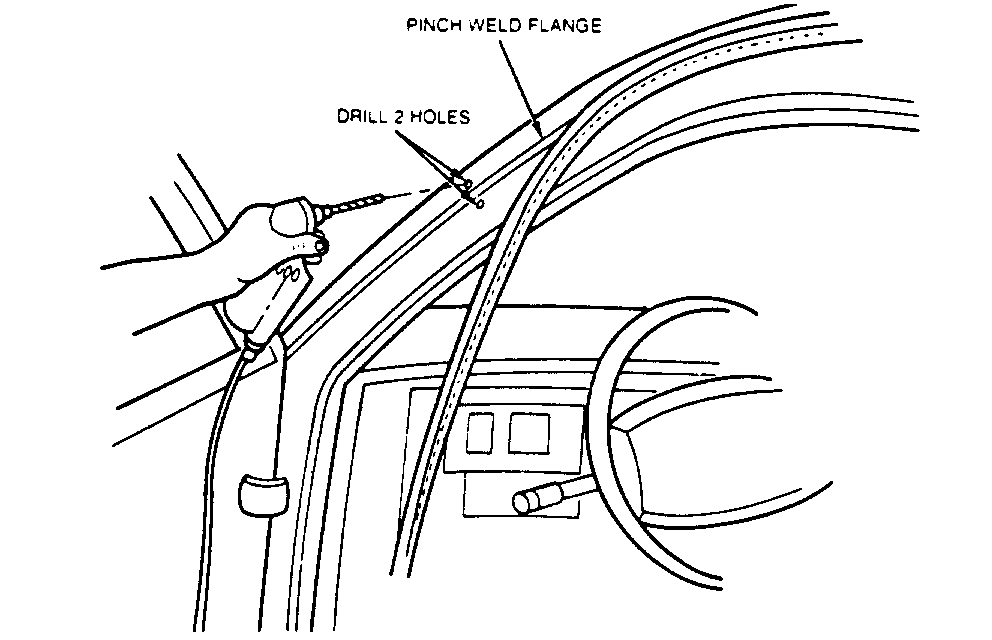WIND NOISE FROM 'A' PILLAR AREA (FILL PILLAR WITH FOAM)

SUBJECT: WIND NOISE FROM A-PILLAR AREA (FILL PILLAR W/DOUBLE EXPANDING POLYURETHANE FOAM)
VEHICLES AFFECTED: 1989-92 'C'
Some 1989-1992 DeVilles and Fleetwoods may have wind noise emanating from the left or right hand A-pillar areas. To correct this condition first confirm there are no window, mirror, windshield, or weatherstrip leaks. Refer to bulletin 89-2-102. The noise from air leaking into the A-pillar can usually be heard with a stethoscope at the front of the headliner.
To repair this condition fill the A-pillar with foam using the following procedure:
1. Remove the secondary weatherstrip from the pinch weld flange.
2. Drill a hole large enough for a foam applicator tube on each side of the pinch weld flange, about half way up the A-pillar, keeping them close enough to be covered by the secondary weatherstrip when it is reinstalled. Refer to Figure 1.
3. Protect the area under the A-pillar as uncured foam will damage interior trim.
4. Fill the pillar with double-expanding polyurethane foam (available at building supply outlets) through both of the holes. First squirt a small amount of foam into a wastebasket to get an idea of how fast it comes out of the can and to make sure the foam expands properly. Keep in mind the volume dispensed will at least double after it expands. Putting too much in will cause the foam to ooze out. Have some acetone handy for clean up.
5. Cover each hole with enough thumb-grade sealer to stay in place. After the foam cures, the sealer can be removed or trimmed so it will be covered by the secondary weatherstrip.
6. Reinstall the secondary weatherstrip and road test the vehicle.

General Motors bulletins are intended for use by professional technicians, not a "do-it-yourselfer". They are written to inform those technicians of conditions that may occur on some vehicles, or to provide information that could assist in the proper service of a vehicle. Properly trained technicians have the equipment, tools, safety instructions and know-how to do a job properly and safely. If a condition is described, do not assume that the bulletin applies to your vehicle, or that your vehicle will have that condition. See a General Motors dealer servicing your brand of General Motors vehicle for information on whether your vehicle may benefit from the information.
